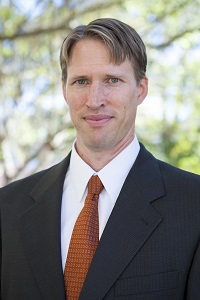
Alan Jung, dean of Samford University's School of Health Professions, has been named to the 2024 list of Who's Who in Health Care list by the Birmingham Business Journal (BBJ). The annual list recognizes top health care executives in Alabama who continue to help make the community a global leader in health care.
Jung: It's an honor to be recognized, but this recognition truly reflects the amazing people I'm blessed to work with in the School of Health Professions. Their commitment, passion and desire to serve others make the school great, reputable, and impactful. It's an honor to lead a school filled with faculty, staff and students who are changing lives and making a positive difference in our communities. They deserve all the credit.
Jung: Ultimately, any good news from the School of Health Professions is empowered by and a reflection of Jesus. God has given us a great calling and purpose, both individually and collectively, to serve others and make a difference wherever we are. We want to honor God by using the gifts He has given us to serve others, so we are committed to serving our students, one another, and our local and global communities.
I hope others will see the impact our school is making and feel inspired to join our vision—whether by enrolling as a student, serving as a preceptor or mentor, partnering with us for service opportunities, providing financial support or collaborating in any way. We welcome the opportunity to partner with individuals or groups to fulfill our calling to serve others.
Jung: I've always felt called to mentor students, and Samford provided the ideal opportunity to combine mentoring, teaching and preparing students to impact the lives of others through health care. My faith can't be separated from my work, and having the freedom to seek both at Samford was clear. I see it in the passion and commitment of the students to make a difference and in the faculty and staff who prepare them for a life of service.
Jung: I'm excited about many initiatives being led by our faculty. Our departments engage students to expand mentoring, offer unique learning and service experiences and foster professional growth, all through a Gospel-centered lens.
The Department of Communication Sciences and Disorders has developed a fast track program for its Master of Speech-Language Pathology, new directed research courses for undergraduates, and enhanced service opportunities, including a clinic for individuals with ALS. An upcoming initiative will provide services to Spanish-speaking families with children who are deaf or hard of hearing.
The Department of Kinesiology's initiatives include monthly student-mentor gatherings, mock interviews, social events with alumni and health care professionals, and immersive clinical experiences. The department has also created new program options in disability studies and strength and conditioning, with a graduate degree in sport and data science starting in May 2026.
The Physician Assistant Studies program is piloting a Service and Mission track for students seeking a more focused approach to missional medicine. The track includes mission-focused preceptors and extracurricular training, such as medical mission trips. The department also recognizes the stress of graduate school and has developed regular activities to support students' overall wellness.
The Physical Therapy Department has a long-standing partnership with Cahaba Medical Care to provide services to underserved and underinsured individuals. This partnership meets a vital community need and offers invaluable real-world learning experiences for our students.
Finally, we have created the 1 Peter 4:10 Service Grants at the school level through a generous donation. These grants provide opportunities for faculty and students to serve local and global communities.
Jung: Ultimately, we aim to equip our students with the knowledge, skills and compassion to provide the best care for every person they encounter. Our faculty use classroom, lab, clinical, research, and service experiences to deliver the most current information and help students consider future trends through information literacy.
Key developments include interprofessional education and practice, evidence-based medicine, and a changing patient population shaped by technological and social changes. While these are not new concepts, they are continually evolving.
Education also teaches students to think critically and use available information to make informed decisions. As techniques improve, society changes, research evolves and information becomes more accessible, we want to prepare our students to adapt and provide the best care for optimal outcomes.
Jung: Honestly, my advice to anyone is to lead with humility. We don't have to agree with someone to love and serve them well. 1 Peter 4:10 reminds us that when we use our gifts to serve others, we deliver God's grace to them. It is both a privilege and an honor to serve.
Second, be willing to listen and learn from others. Whether it's a patient, peer, colleague, professor or mentor, we can learn from everyone and grow because of it.
Finally, be open to changing your mind based on new evidence and admit when you're wrong. Clinging to old ways when new evidence points in a different direction can limit progress and effectiveness.
